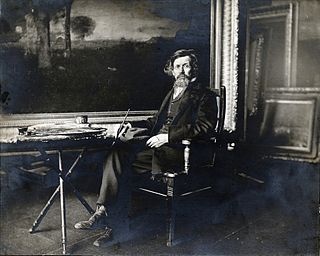A Quote by Samuel Johnson
To write is, indeed, no unpleasing employment, when one sentiment readily produces another, and both ideas and expressions present themselves at the first summons; but such happiness, the greatest genius does not always obtain; and common writers know it only to such a degree, as to credit its possibility. Composition is, for the most part, an effort of slow diligence and steady perseverance, to which the mind is dragged by necessity or resolution, and from which the attention is every moment starting to more delightful amusements.
Quote Topics
Always
Another
Attention
Both
Common
Composition
Credit
Degree
Delightful
Diligence
Does
Dragged
Effort
Employment
Every
Expressions
First
Genius
Greatest
Happiness
Ideas
Indeed
Know
Mind
Moment
More
Most
Necessity
Obtain
Only
Part
Perseverance
Possibility
Present
Produces
Readily
Resolution
Sentiment
Slow
Starting
Steady
Themselves
Which
Write
Writers
Related Quotes
A submissive spirit might be patient, a strong understanding would supply resolution, but here was something more; here was that elasticity of mind, that disposition to be comforted, that power of turning readily from evil to good, and of finding employment which carried her out of herself, which was from nature alone. It was the choicest gift of Heaven; and Anne viewed her friend as one of those instances in which, by a merciful appointment, it seems designed to counterbalance almost every other want.
The highest art is where has been most perfectly breathed the sentiment of humanity...Some persons suppose that landscape has no power of communicating human sentiment. But this is a great mistake. The civilized landscape peculiarly can: and therefore I love it more and think it more worthy of reproduction than that which is savage and untamed. It is more significant. Every act of man, every thing of labor, effort, suffering, want, anxiety, necessity, love, marks itself wherever it has been.
History produces not only the forces of domination but also the forces of resistance that press up against and are often the objects of such domination. Which is another way of saying that history, the past, is larger than the present, and is the ever-growing and ongoing possibility of resistance to the present’s imposed values, the possibility of futures not unlike the present, futures that resist and transform what dominates the present.
Every individual is continually exerting himself to find out the most advantageous employment for whatever capital he can command. It is his own advantage, indeed, and not that of the society which he has in view. But the study of his own advantage naturally, or rather necessarily, leads him to prefer that employment which is most advantageous to society... He intends only his own gain, and he is in this, as in many other cases, led by an invisible hand to promote an end which was not part of his intention
For, above all, I hold a notion of possibility and necessity according to which there are some things that are possible, but yet not necessary, and which do not really exist. From this it follows that a reason that always forces a free mind to choose one thing over another (whether that reason derives from the perfection of a thing, as it does in God, or from our imperfection) does not eliminate our freedom.
Compassion does not only refine and civilize human nature, but has something in it more pleasing and agreeable, than what can be met with in such an indolent happiness, such an indifference to mankind, as that in which the stoics placed their wisdom. As love is the most delightful passion, pity is nothing else but love softened by a degree of sorrow: In short, it is a kind of pleasing anguish, anguish as well as generous sympathy, that knits mankind together, and blends them in the same common lot.
Every living being longs always to be happy, untainted by sorrow; and everyone has the greatest love for himself, which is solely due to the fact that happiness is his real nature. Hence, in order to realize that inherent and untainted happiness, which indeed he daily experiences when the mind is subdued in deep sleep, it is essential that he should know himself. For obtaining such knowledge the inquiry 'Who am I?' in quest of the Self is the best means.
Desire demands only a constant attention to the unknown gravitational field which surrounds us and from which we can recharge ourselves every moment, as if breathing from the atmosphere of possibility itself. A life’s work is not a series of stepping-stones onto which we calmly place our feet, but more like an ocean crossing where there is no path, only a heading, a direction, which, of itself, is in conversation with the elements.
There's another way to edit the sentence, which is to add a comma before the second 'which.' The survivor is struggling toward 'some resolution,' not a specific resolution that the mind may never find. The final clause is an appended thought, not a conclusion of the previous clause: 'Death ends a life, but it does not end a relationship, which struggles on in the survivor's mind toward some resolution, which it may never find.'
That which is common to the greatest number has the least care bestowed upon it. Every one thinks chiefly of his own, hardly at all of the common interest; and only when he is himself concerned as an individual. For besides other considerations, everybody is more inclined to neglect the duty which he expects another to fulfill.
Among those whose reputation is exhausted in a short time by its own luxuriance are the writers who take advantage of present incidents or characters which strongly interest the passions, and engage universal attention. It is not difficult to obtain readers, when we discuss a question which every one is desirous to understand, which is debated in every assembly, and has divided the nation into parties; or when we display the faults or virtues of him whose public conduct has made almost every man his enemy or his friend.




































